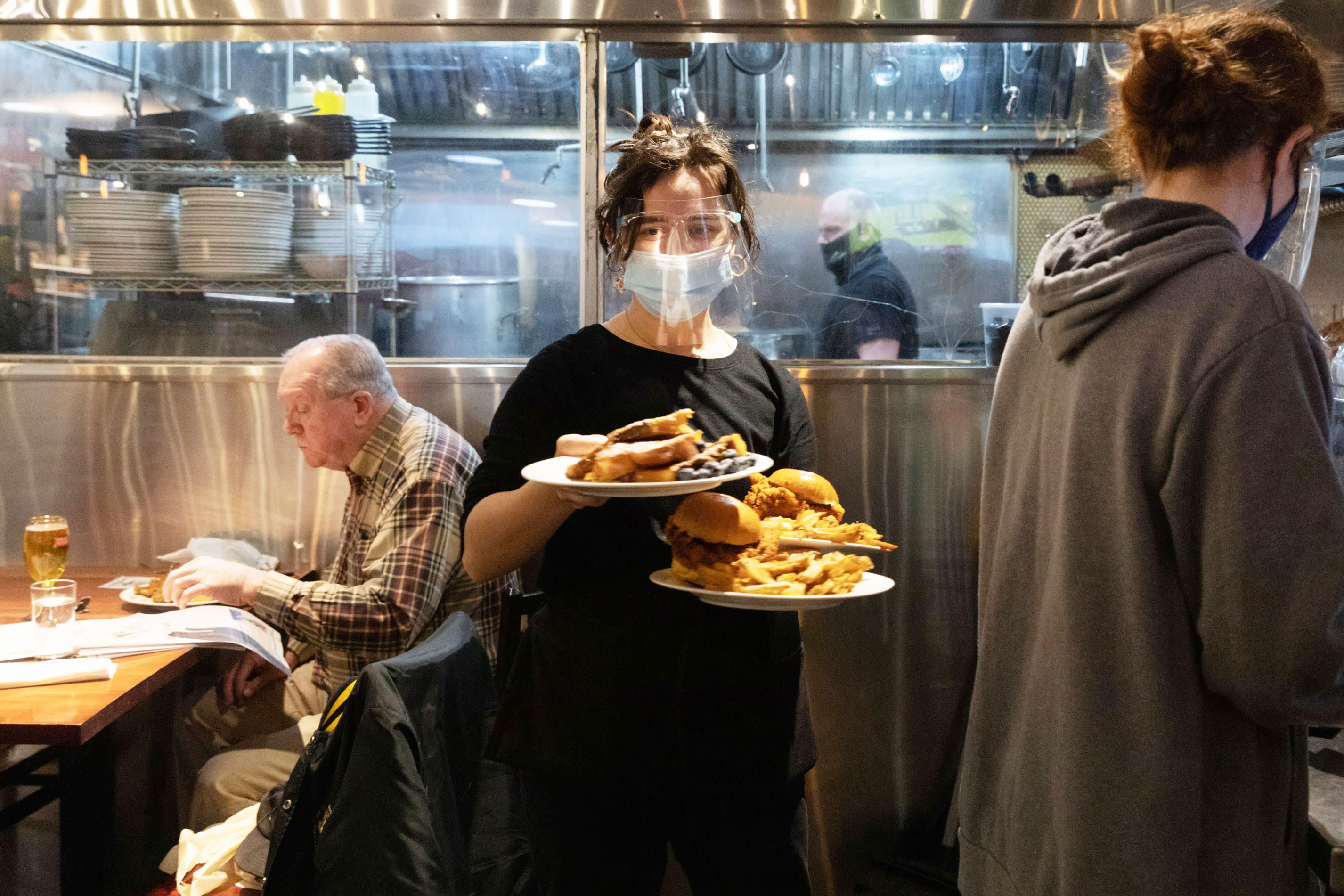CNBC’s Jim Cramer said Monday he’s concerned about plans to further ease indoor dining restrictions in New York City, and he won’t accelerate May plans to reopen his Covid shuttered Brooklyn restaurant.
Restaurants in the city will be able to expand to 50% occupancy starting Friday, up from the current policy of 25%. The move comes as coronavirus vaccines are being rolled out across the U.S., and as some states like Texas ditch pandemic-era restrictions on businesses all together, including mask mandates.
Cramer has recently been targeting a reopen date of Cinco de Mayo, after “mothballing” the restaurant in early October due to coronavirus concerns and the challenging economics of operating at one-quarter indoor capacity. Cinco de Mayo, celebrated on May 5, is a Mexican holiday, marking victory in a key battle against France in 1862.
“We’re sticking by May. We want to get everything right,” Cramer said Monday on “Squawk on the Street.” “I think a rush to open is a mistake.”
“I just think that we don’t know enough still. We don’t know enough about viral load. We don’t know enough about what the real number should be at a bar,” Cramer added. “I just don’t want to be involved with anything that we have so few facts on. But then again, that’s been the state of this thing the whole way — how little we’ve really known.”
According to the CDC, the risk of Covid transmission increases with indoor dining, especially when tables are not spaced at least six feet apart. That’s led to strict restrictions being placed on the restaurant industry during the pandemic, causing many to close permanently as turning a profit in the low-margin business became even more challenging.
In the beginning of Covid, the warmer weather allowed what’s deemed as safer outdoor dining in much of the nation. But as winter weather gripped the Northeast and even in parts of the South and Southwest this year, outdoor dining became more scarce.
On Friday, restaurants in New York state outside of the city will move to 75% capacity.
In nearby Connecticut, Democratic Gov. Ned Lamont is allowing restaurants and certain other businesses to return to 100% capacity Friday. However, social distancing between tables and other precautions, like masks, are still required.
Lamont defended the policy adjustment in a CNBC interview last week, pointing to current Covid case counts and high vaccination rates among older residents as justification. “The difference between 75% and 100% in a restaurant is very difficult to enforce anyway, and we thought, frankly, we have a very low infection rate right now, plenty of capacity in our hospitals,” he said March 8. “This was the time to make the change.”
Coronavirus cases in the U.S. have fallen dramatically since their January peak, prompting state and local leaders across the country to ease up on various restrictions as more Americans are vaccinated. However, new infections remain high, averaging more than 50,000 per day, with more than 1,350 people still dying per day from the virus on average over the past seven days, according to Johns Hopkins University data.
As of Sunday night, 21% of the U.S. population has received at least one vaccine dose, including 63.4% of people ages 65 and up, according to data compiled by the Centers for Disease Control and Prevention. More than 80% of all Covid-related deaths in the U.S. were people 65 and above, CDC data shows.
Top U.S. health officials, White House Chief Medical Advisor Dr. Anthony Fauci, have warned about easing up on Covid restrictions too soon.
Republican Texas Gov. Greg Abbott, for example, said his state was “OPEN 100%” earlier this month, with no masks required.
“When I hear pulling back completely on public health measures, saying no more masks, no nothing like that, that is risky business,” Fauci said Sunday on NBC’s “Meet the Press.”
“If you wait just a bit longer to give the vaccine program a chance to increase the protection in the community, then it makes pulling back much less risky,” Fauci added on “Fox News Sunday.”
